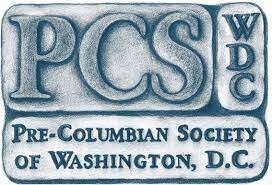Stingless Honeybees during the Postclassic-Colonial Transition of the Maya Lowlands, Geoffrey Wallace, PhD Candidate at McGill University, Montreal, Canada
This meeting will be held at the Charles Sumner School, 17th & M Streets, N.W., Washington, D.C.
The meeting starts with refreshments at 6:45 pm and the lecture begins at 7:15 pm.
The relationship between humans and stingless honeybees in the northern Maya Lowlands underwent significant changes after Europeans conquered and settled in the northwest corner of the Yucatán Peninsula. Before the colonial era the bees’ honey was prized as a sweetener or as a base for alcoholic beverages, and it was traded in large quantities on that basis. As Mesoamerica was integrated into the global silver trade, however, the bees’ wax became a much more important commodity than their honey. In this talk I explore how Mayas kept and used the animals immediately prior to European arrival and how they were integrated into the Postclassic Mesoamerican economy. I then turn to the upheaval of conquest and to the cultural and economic forces that made beeswax a tremendously valuable commodity. I use colonial-era archival documentation from 1540 to 1700 to examine the industry from a variety of perspectives. At the broadest levels, I provide digital maps of the geographical distribution of wax harvesting and how its footprint was spread across the Yucatecan landscape. I conclude with some more detailed perspectives of individual Mayas participating in beeswax extraction whose voices were preserved in the archival records.
While scholarly attention to this subject has been cursory, what little has been written suggests that the beeswax industry was simply a colonial intensification of postclassic beekeeping. Instead, I argue that the beeswax industry in colonial Yucatán was so far removed from pre-colonial forms of beekeeping and bee-derived commodity exchange that it should be considered as a completely new phenomenon in the region. Although it was still entirely indigenous bees being harvested by indigenous peoples, the product, means, process, and economics of extraction were unrecognizable from centuries prior, and this dramatic shift in human-bee relationships had dramatic implications for the daily lives of both bees and people in the northern Maya Lowlands.
Geoff Wallace is a PhD candidate in History at McGill University in Montreal, Canada. He is a specialist in digital mapping and in the integration of geographical information systems into historical research. His dissertation is titled The Living Rock: Mapping Landscapes in Colonial Yucatán. He is currently a visiting researcher at the Center for Latin American Studies at Georgetown University, where he is working on a project to digitally map the colonial geography of the Yucatán Peninsula.


